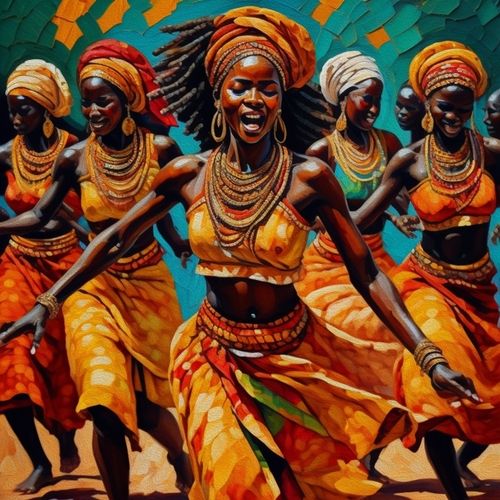 Traditional African religions encompass a diverse array of indigenous spiritual systems practiced by various ethnic groups across Africa. Unlike monotheistic faiths that tend to follow a single founder and sacred text, these religions are deeply rooted in the customs, histories, and philosophies of African communities. This article delves into the core beliefs, practices, and significance of traditional African religions, highlighting their rich contribution to the spiritual and cultural tapestry of the continent.
Traditional African religions encompass a diverse array of indigenous spiritual systems practiced by various ethnic groups across Africa. Unlike monotheistic faiths that tend to follow a single founder and sacred text, these religions are deeply rooted in the customs, histories, and philosophies of African communities. This article delves into the core beliefs, practices, and significance of traditional African religions, highlighting their rich contribution to the spiritual and cultural tapestry of the continent.
Core Beliefs of Traditional African Religions
Polytheism and Animism
At the heart of many traditional African religions is polytheism, the belief in multiple deities. These gods and goddesses often personify natural forces and elements such as rivers, mountains, and the sun, reflecting the deep connection African cultures have with their environment. Alongside polytheism, animism plays an important role; it's the belief that non-human entities, including animals, plants, and even inanimate objects, possess a spiritual essence. This animistic worldview fosters a profound respect for nature and underscores the interdependence between humans and the natural world.
Ancestor Veneration
Ancestor worship is another pivotal element in traditional African religions. Ancestors are revered and believed to play an active role in the lives of the living, influencing their fortunes for better or for worse. Rituals, offerings, and prayers are directed toward ancestors to seek their guidance, protection, and blessings. This practice emphasizes the value of kinship and continuity between the past, present, and future generations.
Divination and Rituals
Divination is a common practice used to communicate with the spiritual realm, seek advice, or predict the future. It is typically performed by religious specialists, such as shamans, priests, or diviners, who interpret omens or use specific tools to gain insights from the gods or ancestral spirits. Rituals, which may include music, dance, and the use of sacred objects, are integral to celebrating important life events, appeasing deities, or marking communal festivals.
Religious Practices and Ceremonies
Initiation Rites
Initiation rites are significant in traditional African religions, marking the transition from childhood to adulthood. These ceremonies are not only about social status but also involve imparting spiritual knowledge and preparing the young for their responsibilities as adult members of the community. The rites often include teachings on moral values, community history, and the secrets of the spiritual world.
Healing and Protection
Healing rituals are vital, reflecting the belief in the spiritual causes of illness and misfortune. Traditional healers, often endowed with knowledge of medicinal plants and spiritual healing techniques, play a crucial role in curing diseases and warding off evil spirits. Protection rituals are also commonly performed to safeguard individuals and communities from harm.
Societal and Cultural Impact
Traditional African religions are deeply woven into the social and cultural fabric of African societies. They influence various aspects of life, including law, politics, art, and ethics, providing a framework for social order and moral conduct. The communal aspect of these religions fosters a strong sense of identity and belonging among members, reinforcing social cohesion and mutual support.
Contemporary Challenges and Revival
Modernity and Religious Syncretism
The encounter with modernity and the spread of major world religions like Christianity and Islam have posed significant challenges to traditional African religions. Many African societies have seen a syncretism of religious beliefs, where elements of traditional and modern religions are blended. While this has led to the decline of some traditional practices, it has also resulted in the emergence of new religious forms that retain elements of African spirituality.
Preservation and Revival
There is a growing movement towards preserving and reviving traditional African religions, driven by a renewed interest in indigenous cultures and identity. Scholars, cultural activists, and community leaders are working to document and promote these practices, emphasizing their relevance in contemporary society.
Traditional African religions offer a rich, complex understanding of spirituality that is integral to the identity and heritage of millions across the continent. These religions not only shape the everyday lives of their adherents but also offer insights into the diverse ways human beings understand and interact with the divine. As Africa continues to modernize, the preservation and appreciation of these traditional beliefs will be crucial in maintaining the continent's unique cultural heritage.